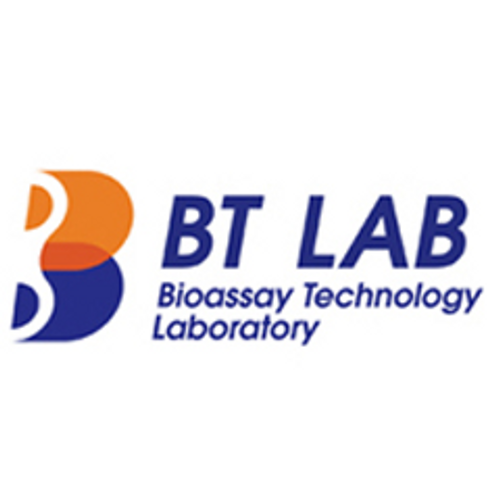Product Description
Mouse Phosphinothricin acetyltransferase (PAT) ELISA Kit | AE58099MO | Abebio
Species Reactivity: Mouse (Mus musculus)
Abbreviation: PAT
Alternative Name: N/A
Application: ELISA
Range: 15.6-1000 pg/mL
Sensitivity: 7.5 pg/mL
Intra-Assay: ≤3.7%
Inter-Assay: ≤7.8%
Recovery: 0, 98
Sample Type: Serum, Plasma, Other biological fluids
Detection Method: Sandwich
Analysis Method : Quantitive
Test Principale: This assay employs a two-site sandwich ELISA to quantitate PAT in samples. An antibody specific for PAT has been pre-coated onto a microplate. Standards and samples are pipetted into the wells and anyPAT present is bound by the immobilized antibody. After removing any unbound substances, a biotin-conjugated antibody specific for PAT is added to the wells. After washing, Streptavidin conjugated Horseradish Peroxidase (HRP) is added to the wells. Following a wash to remove any unbound avidin-enzyme reagent, a substrate solution is added to the wells and color develops in proportion to the amount of PAT bound in the initial step. The color development is stopped and the intensity of the color is measured.
Product Overview: Members of the perilipin family, such as PLIN5, coat intracellular lipid storage droplets and protect them from lipolytic degradation. By searching EST databases using a conserved perilipin motif, Dalen et al. (2007) identified human PLIN5, which they called LSDP5. The predicted 463-amino acid protein is 74% identical to the mouse protein. Northern blot analysis of human tissues revealed expression of a major 2.5-kb transcript in skeletal muscle and liver, with weaker expression in heart and kidney. In heart, a 5.0-kb transcript was also expressed. Fluorescence microscopy demonstrated expression of mouse Lsdp5 around lipid storage droplets in transfected cells. Lsdp5 expression was upregulated by fasting independently of Ppara.
Stability: The stability of ELISA kit is determined by the loss rate of activity. The loss rate of this kit is less than 5% within the expiration date under appropriate storage condition. The loss rate was determined by accelerated thermal degradation test. Keep the kit at 37°C for 4 and 7 days, and compare O.D.values of the kit kept at 37°C with that of at recommended temperature. (referring from China Biological Products Standard, which was calculated by the Arrhenius equation. For ELISA kit, 4 days storage at 37°C can be considered as 6 months at 2 - 8°C, which means 7 days at 37°C equaling 12 months at 2 - 8°C) .
 Euro
Euro
 USD
USD
 British Pound
British Pound
 NULL
NULL












